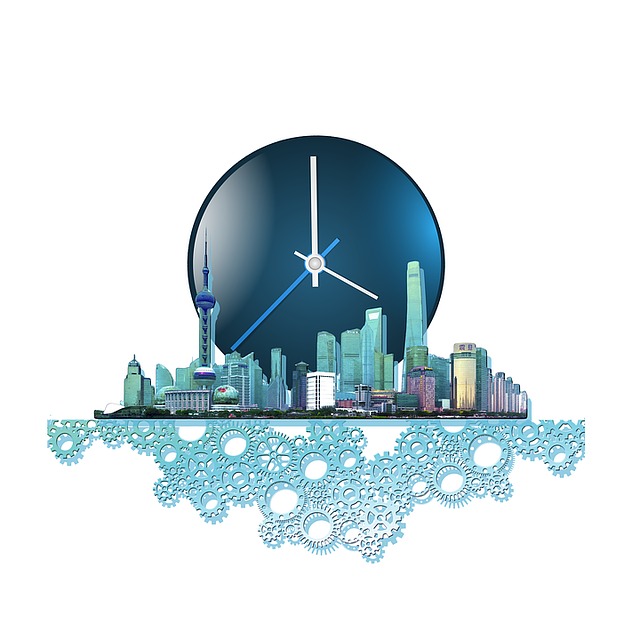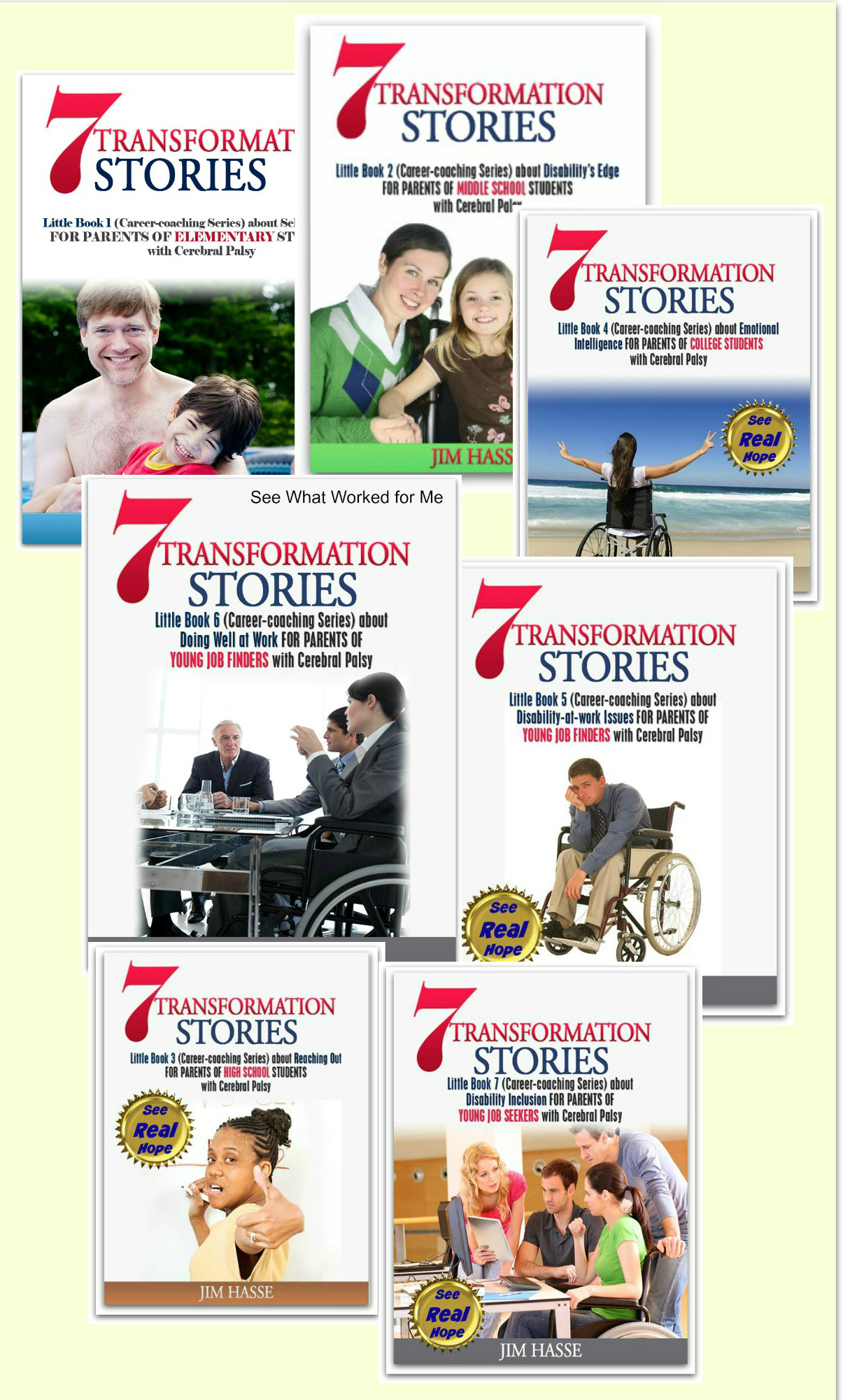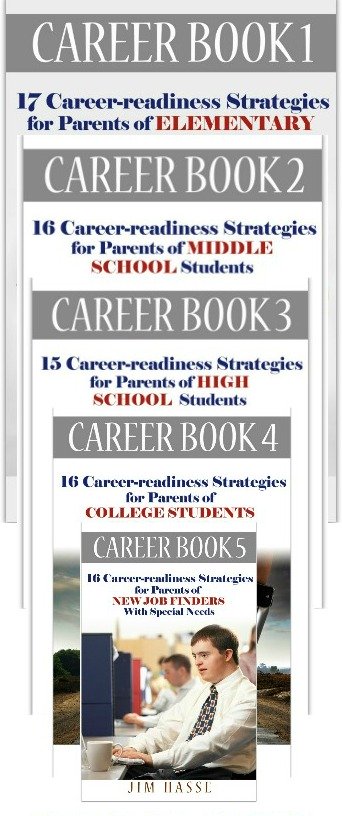Why People Work: Cerebral Palsy Career Builder for Middle School Students
By Jim Hasse, ABC, GCDF, Disability Employment Expert
_________________________________________________________
Why people work is an insight that may help your middle school student with cerebral palsy (CP) put the concept of career management into a perspective that is both understandable and meaningful.
To tell you the truth, I didn’t give much thought to this issue until 18 years ago, when I was 55. Even then, it would probably have escaped my attention, if I had not been asked, during National Disability Employment Awareness Month, why having a job was important to me.
Here’s what I wrote at that time.
10 reasons why having a job is important to me
At birth, doctors said I would never walk or talk. Looking back on 36 years in business (10 of them at the vice presidential level), I now realize there are at least 10 reasons why work has been important to me as a person with a disability.
- A job is the time-tested
way to earn money.
Forget the entitlements, the lottery or a chance inheritance. I want more security than they offer, and the only way I know to make money, at least initially, is to work for it.
- A job means I'm on the
road to independence and self-support.
In most societies, working is a passport to independence, a luxury many people without disabilities may take for granted. But, self-support -- and the pride that goes with it -- is the real reason I want a job.
- A job is the first step in
solving some of my problems.
Earning an income and becoming independent gives me the opportunity to solve some of my problems -- disability-related and otherwise -- in my own way and under my own terms and within my own timetable.

- A job gives me the means
to create a better life for myself.
Addressing problems in my own way through independent living also means I have an opportunity to go beyond the basics of living -- which is part of the American dream.
- A job is the best way to
develop my work skills.
Part of the American dream is learning how to do a job. I did well in my first job (after lots of effort), and it became the foundation for my career.
Which of these 10 reasons
for including individuals with a disability
in a work setting rings most true to you?
Join PACER’s Facebook discussion.
- A job means I have the
possibility of getting a better job.
Getting my first job and doing well in it opened all kinds of possibilities for me. It meant that I could continue to grow as a person and as a jobholder.
- A job gives me hope
because my future begins to open up for me.
With personal and occupational growth comes hope, which helps me build my self-confidence.
- A job is the primary path
toward self-respect in our society.
With the self-confidence I gain by doing well in a job comes self-respect, an achievement I count as most important.
- A job opens possibilities
for purposeful -- instead of useless -- living.
Self-respect is one of the cornerstones of purposeful living, which I define as helping myself as well as serving others. - A job means I've taken a
big step from exclusion to inclusion.
Inclusion, even in a limited way through work, is a big step for me. But there are always new barriers to overcome, so, for me, striving for inclusion is a lifelong commitment.
In writing that piece, I found approaching why people work from a disability perspective revealed how important employment is to us all. The need for self-respect and inclusion, both important motivators for doing well at work, is universal.
Yet, we are also all vulnerable at some level and employment -- whether we’re in business for ourselves or working for others – gives us the leverage to pull ourselves up to levels we could only imagine (and hope for) while in school.
I hope, at some point, my 10 reasons for why people work make sense for your junior high youngster. In my mind, these 10 reasons provide the rationale for eventually finding the motivation it takes to build a meaningful career when one of the obstacles involved is CP.
Which
of these 10 reasons
for including individuals with a disability
in a work setting rings most true to you?
Join PACER’s Facebook
discussion.
Return from Why People Work to Career Test
Go to Cerebral Palsy Career Builders
This is Creative Commons content. You can freely and legally use, share and repurpose it for non-commercial purposes only, provided you attach this sentence and the following attribution to it (including the two links):
Originally written and illustrated by Jim Hasse, ABC, GCDF, owner of Hasse Communication Counseling, LLC, who, as a person with cerebral palsy, served for 10 years as a vice president in a Fortune 500 company during his 29-year career in corporate communication. He’s an Accredited Business Communicator, certified as a Global Career Development Facilitator and author of 14 Amazon books about disability awareness and disability employment issues.





